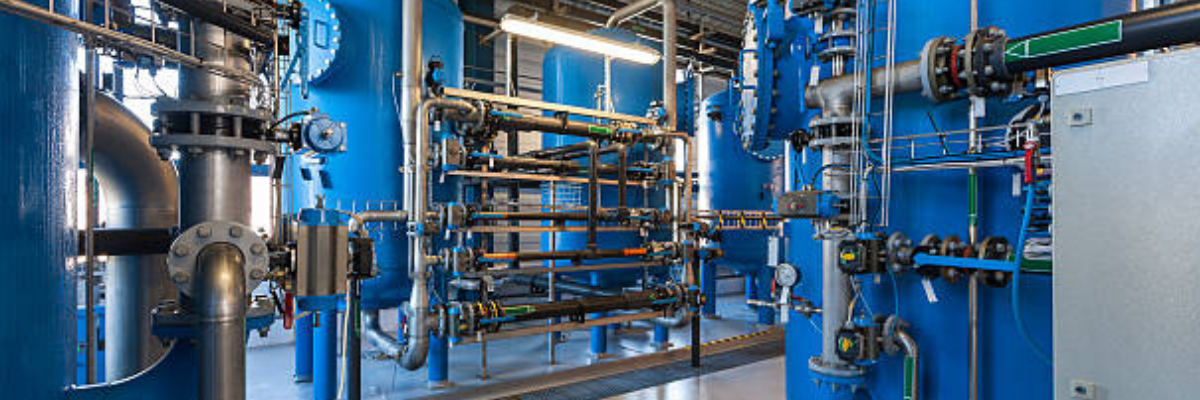An industrial water filtration system provides numerous advantages for large-scale operations, particularly in manufacturing, energy production, and other industrial sectors that require significant volumes of clean water. Here are the key benefits:
1. Improved Water Quality
- Removes Contaminants: Industrial filtration systems effectively remove a wide range of contaminants, including sediments, chemicals, heavy metals, bacteria, and organic compounds, ensuring the water meets the stringent quality requirements for industrial processes.
- Enhanced Consistency: These systems ensure a consistent water quality, which is critical in maintaining the efficiency and safety of industrial processes.
2. Protects Equipment and Infrastructure
- Prevents Scaling and Corrosion: By removing minerals like calcium and magnesium, filtration prevents the buildup of scale in pipes, boilers, heat exchangers, and cooling systems, reducing corrosion and extending the lifespan of equipment.
- Reduces Wear and Tear: Clean, filtered water minimizes wear on machinery and equipment, lowering maintenance costs and reducing the risk of downtime due to equipment failure.
3. Cost Savings
- Lower Maintenance and Repair Costs: The system reduces the frequency of maintenance and repairs by preventing blockages, scale, and corrosion in critical equipment.
- Energy Efficiency: Cleaner water leads to more efficient operation of equipment like boilers, chillers, and cooling towers, which reduces energy consumption and costs.
- Reduced Water Waste: Advanced filtration systems often have features that allow for the recycling and reuse of water, minimizing water wastage and lowering water bills.
4. Environmental Compliance
- Meets Regulatory Standards: Many industries must adhere to strict environmental regulations regarding water discharge and usage. Filtration helps ensure compliance by removing harmful pollutants and reducing the environmental impact of wastewater.
- Supports Sustainability Initiatives: Filtration systems reduce water consumption through recycling and reuse, aligning with corporate sustainability goals and reducing the environmental footprint.
5. Improved Product Quality
- Critical for Manufacturing: In industries such as pharmaceuticals, food and beverage, and electronics, the quality of water directly affects the quality of the final product. Industrial filtration ensures that water used in production is free from impurities, leading to higher quality products.
- Consistency in Production: Consistent water quality is crucial for maintaining the precision of industrial processes, preventing contamination and defects in the final products.
6. Health and Safety
- Prevents Biological Contamination: Industrial water filtration systems can remove harmful bacteria, viruses, and other biological contaminants, ensuring safe water for workers and industrial processes, which is particularly important in industries like food processing.
- Improves Workplace Safety: By reducing harmful chemicals and biological contaminants, filtration systems help create a safer working environment for employees.
7. Wastewater Treatment and Reuse
- Efficient Wastewater Management: Industrial filtration systems are often used in conjunction with wastewater treatment processes to remove contaminants before water is discharged or reused. This reduces the environmental impact and complies with discharge regulations.
- Water Recycling: Many systems support water recycling and reuse within the facility, lowering overall water consumption, which is especially important in water-scarce regions or industries with high water demand.
8. Scalability and Customization
- Customizable Solutions: Industrial water filtration systems can be tailored to meet the specific needs of various industries, whether it’s removing specific contaminants, adjusting to large volumes of water, or integrating into complex water management systems.
- Scalable for Large Operations: These systems can handle vast quantities of water, making them suitable for large industrial facilities and operations with high water consumption.
9. Increased Operational Efficiency
- Optimizes Industrial Processes: Clean water is essential for optimal performance in industrial processes, such as cooling, heating, chemical processing, and product formulation. High-quality water helps maintain operational efficiency and reduces the risk of disruptions.
- Supports Continuous Production: By minimizing contamination and equipment failure, industrial water filtration helps ensure continuous production, which is critical in industries that run 24/7 operations, such as energy plants or large manufacturing facilities.
10. Energy Efficiency
- Improves Equipment Efficiency: Clean water reduces energy consumption by allowing equipment to operate at optimal efficiency. For example, a boiler running on filtered water uses less energy because it doesn’t have to work as hard to maintain temperature and pressure levels.
- Reduces Operating Costs: With more efficient equipment and processes, industrial facilities can significantly reduce their overall operating costs, especially in energy-intensive industries.
11. Reduced Environmental Impact
- Lowers Water Pollution: Industrial filtration systems help in treating water before it is discharged into the environment, reducing the levels of pollutants and protecting ecosystems.
- Supports Corporate Social Responsibility (CSR): Many industries are under pressure to reduce their environmental impact, and water filtration is a key part of broader sustainability and CSR strategies.
12. Improves Workplace Efficiency
- Less Downtime: Reduced equipment failure and the consistent quality of water lead to fewer production stoppages and interruptions, improving overall workplace efficiency.
- Better Worker Morale: Clean water for on-site use, whether for cooling systems or even for employee consumption, creates a healthier and more efficient work environment.
13. Enhances Competitive Advantage
- Product Differentiation: In industries where water quality directly affects product outcomes, having a superior water filtration system can lead to higher quality products, giving the company a competitive edge.
- Cost-Effective Operations: By reducing water and energy consumption and improving equipment longevity, companies can operate more cost-effectively, offering better pricing or higher margins than competitors.
Conclusion
Industrial water filtration systems offer significant advantages, including enhanced water quality, reduced operational costs, increased equipment lifespan, regulatory compliance, and sustainability. These systems are essential for optimizing industrial processes, improving product quality, and ensuring environmental responsibility.


Recent Comments